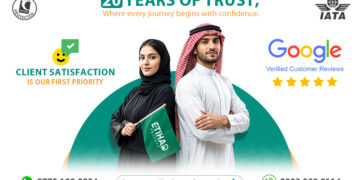Understanding Freezone Licensing Requirements
The UAE’s Freezones are designed to facilitate efficient business setup for international investors and entrepreneurs. While Freezones offer a simplified licensing process compared to Mainland companies, submitting the correct documents is critical for fast approval.
Each Freezone has specific requirements depending on the business activity, license type, and company structure. Commonly, you’ll need a combination of identity verification, legal documentation, and proof of business intent.
Professional consultants, such as business consulting firms in dubai guide entrepreneurs through these requirements, ensuring that applications are accurate and complete, reducing the risk of delays.
Core Documents Required for Freezone License Applications
Although requirements vary by Freezone, the following are typically mandatory:
- Passport Copies
All shareholders, directors, and authorized signatories must provide a valid passport copy. This serves as proof of identity for registration and licensing. - Visa or Emirates ID (if applicable)
For existing UAE residents, visa copies and Emirates IDs may be required, particularly if shareholders are applying for visas through the Freezone. - Proof of Business Address
Even for virtual offices, Freezones require proof of a registered business address within the zone. This could be a tenancy contract, office lease, or a package offered by the Freezone authority. - Bank Reference Letters or Financial Statements
Many Freezones request a bank reference letter or recent financial statements to verify the company’s financial standing, especially for commercial or industrial licenses. - Business Plan or Activity Statement
A concise business plan or statement of activities detailing the nature of the business, target market, and operational model is often required to validate your license application. - Shareholder and Director Resolutions
For corporate applicants, board resolutions confirming approval of business setup, capital allocation, and management structure may be needed. - Additional Industry-Specific Approvals
Certain sectors, such as healthcare, education, or finance, may require specialized approvals or certifications before the license can be issued.
Optional Documents That Facilitate Faster Approval
While not always mandatory, submitting these documents can accelerate the process:
- No Objection Certificates (NOC) for employees transferring from other employers.
- Existing Company License Copies if establishing a branch of a foreign business.
- Professional Qualifications or Certifications for service-based licenses to demonstrate expertise.
Consultants ensure that all optional documents are prepared and included when necessary, preventing unnecessary back-and-forth with the Freezone authority.
Step-by-Step Document Submission Process
- Gather and Verify All Documents
Ensure passports, visas, bank letters, and business plans are up to date and correctly formatted. Errors or missing documents are the leading cause of approval delays. - Prepare Digital Copies
Most Freezones now accept online submissions. Having digital copies in the required format ensures smooth upload and review. - Complete Application Forms
Fill out the Freezone-specific application accurately, including shareholder information, business activity, and license type. - Submit to Freezone Authority
Submit the application along with all required and optional documents. Some Freezones offer live tracking of approval status, allowing you to respond to queries quickly. - Receive Conditional Approval
Upon initial review, the Freezone may issue conditional approval. At this stage, fees are confirmed, and any missing documentation is requested. - Final Approval and License Issuance
Once all documents are verified and fees are paid, the Freezone issues the official business license, enabling you to legally operate within the zone.
Challenges and Best Practices
Despite the streamlined Freezone process, some common challenges arise:
- Incomplete Documentation – Missing passport copies, unclear activity statements, or incorrect office proofs can delay approval.
- Industry-Specific Compliance – Certain sectors require additional certification or approvals that may not be immediately obvious to new entrepreneurs.
- Digital Submission Errors – Incorrect file formats or oversized documents can result in rejected applications.
Best Practices:
- Work with experienced consultants to ensure every document meets Freezone requirements.
- Prepare all documents in advance to avoid delays.
- Double-check business activity alignment to ensure your license is valid for intended operations.
How The Startup Zone Simplifies the Process
The Startup Zone provides end-to-end support for Freezone business setup, including:
- Reviewing required documents for completeness and accuracy.
- Advising on industry-specific approvals and additional certifications.
- Managing the submission process with Freezone authorities.
- Ensuring fast conditional and final approval.
By leveraging professional guidance, entrepreneurs save time, reduce errors, and avoid common pitfalls during the licensing process.
Final Words
Understanding the required documentation is essential for a smooth and fast Freezone business setup in the UAE. From identity proofs to business plans and optional certifications, thorough preparation ensures your application is approved without unnecessary delays.
Partnering with The Startup Zone ensures every step, from document preparation to license issuance, is handled efficiently, allowing you to focus on launching and growing your business in Dubai’s dynamic Freezone ecosystem.















